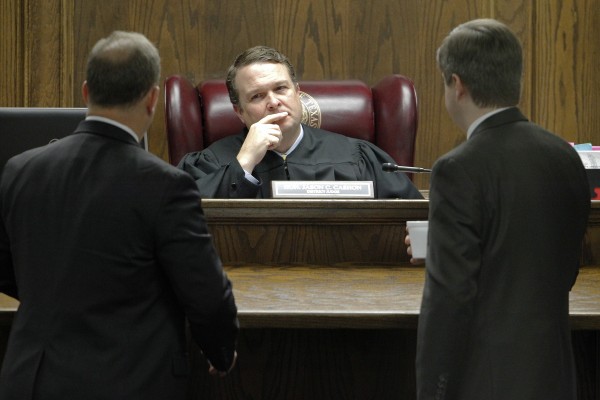Is it Dangerous to Make Films Relevant to Current Events?
March 11, 2015
There’s a huge difference between “Selma” and “American Sniper,” and part of that has to do with time. While both touch on issues which are still extremely relevant today, “Selma” has the benefit of learning from the 50 years of history between the march from Selma to Montgomery, Ala. led by Martin Luther King Jr. and the present day. “American Sniper,” on the other hand, had a relatively quick turnaround, from 2012, when Chris Kyle’s memoir of the same name was published, to the film’s release in theaters in 2014. It’s also an Oscar-winning, widely discussed film about a victim of a crime, in theaters during the trial of the accused killer. This, coupled with the movie’s obvious hero worship of Kyle, created immense bias against Eddie Ray Routh who was inevitably found guilty of the murder of both Kyle and Chad Littlefield.
Deborah Denno, a law professor at Fordham Law School, told the International Business Times, on Jan. 20, “Any movie is trying to influence everyone from mid-teens to older adults and that’s your jury pool.” From portraying Kyle as an all-American hero and glorifying war to including a statement in the end credits declaring that Kyle was killed “by a veteran he was trying to help,” it’s clear exactly how “American Sniper” is “trying to influence everyone.” But whether or not you’ve seen the film, the hype surrounding it virtually ensures that everyone has an opinion. For the most part, we’re in one of two camps: one that believes the image of Kyle that “American Sniper” forces on us, and one that sees the exact opposite—critics of the movie have described Kyle as a killer who enjoyed killing and never had any regrets about doing so. Routh’s right to a fair trial was in jeopardy the moment “American Sniper,” designed to influence public opinion just like any other feature film, hit theaters—maybe even when the bloody, action-packed trailers first graced our television screens.
The saga surrounding “American Sniper” and the Routh trial makes at least one thing clear: we should not be producing films about current events. The only nuanced portrayals of “true stories” we seem to be able to produce are documentaries, and those that put many years between the event in question and the film’s release—sure, it’s virtually impossible to tell any kind of story without bias, but these kinds of movies at least invite us to come to our own conclusions. We can follow up on the expert testimony and other evidence presented to us and draw from years of history and research, instead of being force-fed a prepackaged story in which the hero’s intentions go unquestioned and everything is assumed to be “just” and “good.”
The events themselves already influence us enough—you don’t have to look much further than the upcoming trial of Boston bomber Dzhokhar Tsarnaev. It took months to find a group of eligible jurors for Tsarnaev (from Jan. 5 to March 2), and it’s not hard to see why. It was near impossible to find a group that hadn’t been directly affected by what transpired on April 15, 2013, and even as the trial opened on March 3, jurors were described as “dabb[ing] their eyes” and choking back tears as they listened to witnesses’ testimonies, according to USA Today. The bombing did not only wrack the nation, but shook Boston to its very core: almost everyone knew someone running that day, a spectator, or even someone who worked or lived in the general vicinity. The defense, from the very beginning, was clear about their fears that there was an overwhelming presumption in the state that Tsarnaev was guilty and that his trial should be moved out of Massachusetts. And in a case with the death penalty, juror impartiality becomes even more important. I can’t even imagine what kind of mess we’d be in if we had an “American Sniper” style movie made that, just as it glorified Kyle, further demonized the Tsarnaev brothers in the eyes of Massachusetts residents.
Some stories just can’t be told right away—at least not in the format of a blockbuster film. The air is already so charged when it comes to discussing current events or issues that a Hollywood movie pushing its audience toward a certain mindset can only have a polarizing effect. In this kind of atmosphere, extreme views dominate (i.e. Kyle is either an unfeeling killer or an all-American hero) and the platform to have a meaningful debate or discussion, much less a fair trial if one is involved, disappears.













